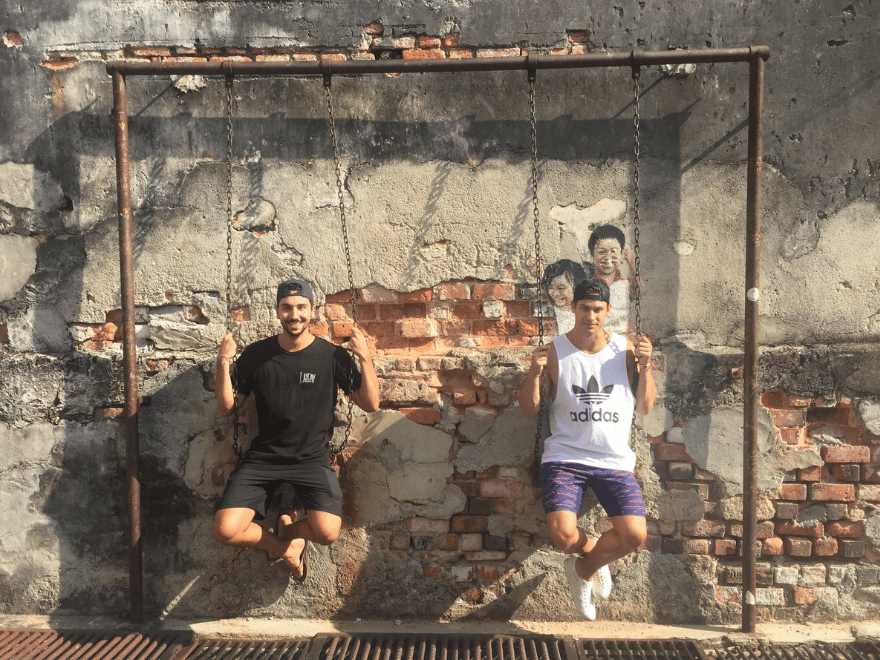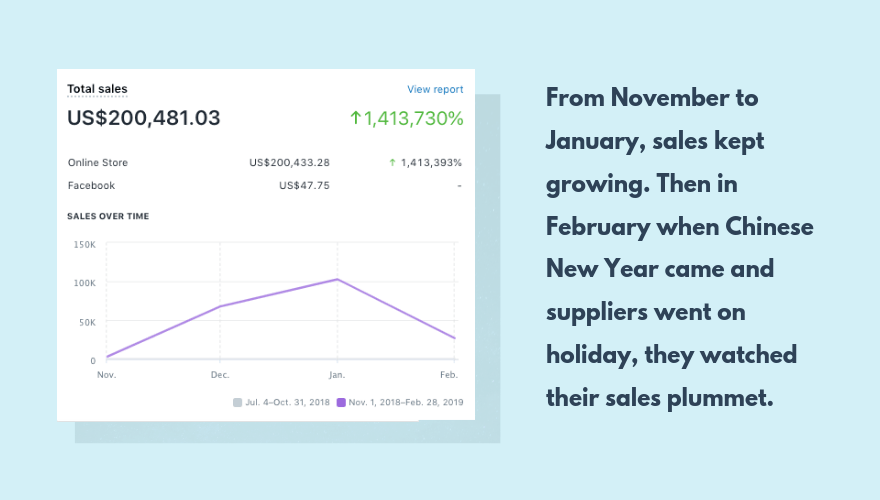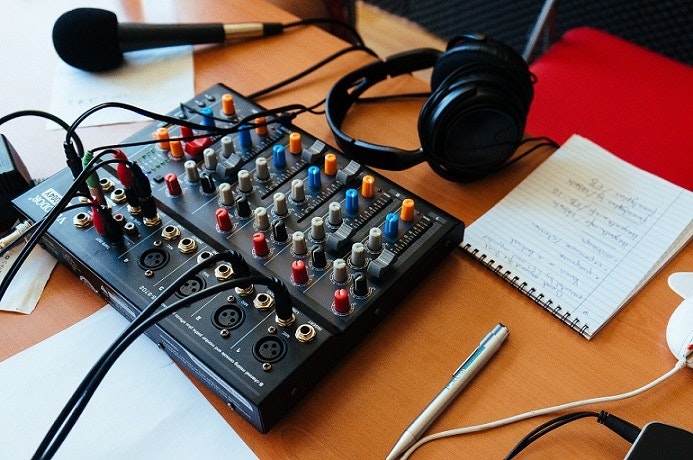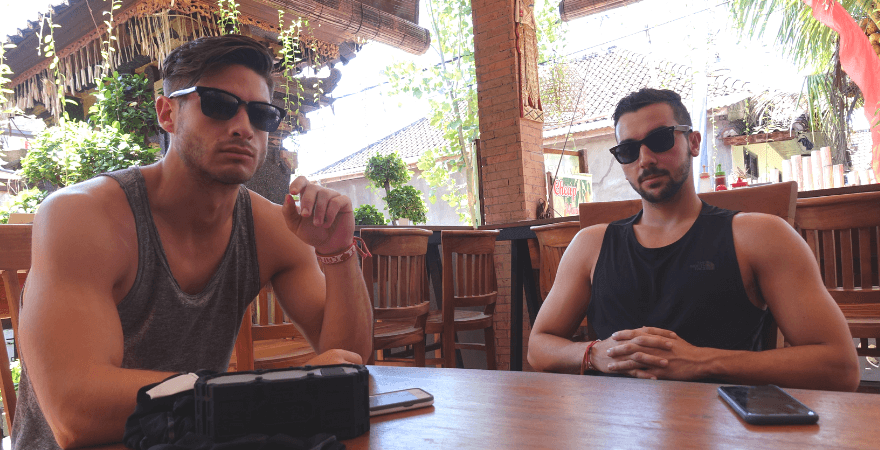Where We're From, This Is Not a Traditional Job At All
Rodney Zachariuk (25) and Kory Szostak (27) have an entrepreneurial mindset. They were always thinking differently, and always dreaming up ways to make money here and there. That entrepreneurial mindset eventually led them to open an ecommerce store that, a little more than a year later, has generated six figures in revenue.
It wasn’t always comfortable. For example, when they were preparing to launch their business, they remember politely declining offers to hit the bars, and instead spending then entire night lurking on Reddit and consuming hours upon hours of YouTube tutorials.
They share their story about how entrepreneurs think, shutting out the doubters, and scaling their business to the point that it funds trips around the world.
Here's a ten-point TL;DR summary of Rodney and Kory's interview:
- The Entrepreneurial Mindset is all about dedication
- Entrepreneurs bootstrap where possible, in order to save money
- How entrepreneurs think is unusual to normal 9-5ers
- Entrepreneurs are constantly thinking of big ideas and how to build/scale them
- Entrepreneurs want to learn and discover new things they would never imagine learning in any other way
- Another thing about how entrepreneurs think - you gotta figure things out yourself
- Continual education, to entrepreneurs, is what will bring success
- Entrepreneurs care about their audience and engage with their community
- Organic traffic is the driver of everything as it's free and sustainable
- Entrepreneurs think about the long term, not short term
Start Yours is a podcast about ecommerce, dropshipping, and all things launching a business.
Join us as we meet entrepreneurs who have gone through the triumphs and headaches of running an online store, and learn how they managed to survive and thrive.
The entrepreneurial mindset is unlike the mindset of traditional workers. In today’s podcast episode, you’ll learn how entrepreneurs think differently. We sit down with Rodney and Kory to discuss how the entrepreneurial mindset has shifted their approach to their business.



How Entrepreneurs Think: The Entrepreneurial Mindset
David: You guys have talked about how there was this sense among your family and your friends that trying to start your own business was kind of an unusual concept, and maybe even a little bit more than unusual to the point that people were thinking it might be a little bit on the risky or dumb side. What were you feeling in these days before you launched the store or maybe shortly after you launched your business, and kind of this perception that what you were doing was kind of radical?
Rodney: I feel like we’ve kind of experienced that our whole lives because we’ve been both pretty out there kind of people with our ideas and entrepreneurial mindset. We have big vision, I guess you’d say.
→ Click Here to Launch Your Online Business with Shopify
Kory: Yeah.
Rodney: With an entrepreneurial mindset, we always come up with crazy business ideas or crazy ways to make money or just…
Kory: They’re just big ideas in general. That's how entrepreneurs think differently I guess.
Rodney: Yeah.
Kory: Kind of moving from that first point of everyone goes on vacation for two weeks a year doing all-inclusive in Mexico, and they spend their two weeks off there, and for us, we’re like, “We wanna go somewhere else in Costa Rica.”
Rodney: Experience a different place.
Discovering You Have An Entrepreneurial Mindset
Kory: From my point of view, how entrepreneurs think is "Why don’t we try out a different thing". And so from that point on, I think our world opened up because you met a guy that got into dropshipping. I had been at home by that point, and then I met a friend who explained it to me briefly, and then kinda connected after that and we were like, “We gotta try this together.” That was the start of the entrepreneurial mindset.
Rodney: Yeah. I actually shared a cab with a guy in Costa Rica on the way to the airport, and he started to explain the dropshipping business model to me, and I started just writing down notes on my phone. And this was probably two or three years ago now, and I researched it a bunch when I got home, and then after that, I guess life kind of got in the way and I left it on the backburner. But Kory started talking to me about it again, and then we started to try it.
Kory: Yeah.
Rodney: And I guess.
Kory: Did some test stores from there.
Rodney: Yeah.
The Difference Between a Traditional and Entrepreneurial Mindset
Kory: And then just to go back to your question, how did we deal with the kind of the…
David: The haters.
Kory: The haters. Yeah, that was when we… That was one of the most difficult things that we kind of encountered at the beginning just because where we’re from, this is not a traditional job at all or a business model that people are even aware of. So to kind of combat that… It was difficult at first because we didn’t really wanna tell people what we were doing just because we were scared of the backlash. And we didn’t wanna have that kind of negative social stigma towards us.
A lot of people, they like to see you do well, but not better than them at the same time. So for us to kind of push forward with what we were doing, we didn’t wanna have to deal with the mental and social aspect of that, so for us it was easier to keep quiet about our entrepreneurial mindset. And I guess when we first started, we ended up going to Asia for four or five months. But when we were testing a bunch of stores out, we kinda had an excuse of, “Oh, we don’t wanna go out and spend money,” so we would stay at home and work on this kind of behind the scenes and practice learning how to use Shopify and Oberlo and find products, but then…
Rodney: Build Instagram.
Kory: Yeah, build Instagram. And then we ended up taking off for those months and then didn’t really do a whole lot.
Rodney: No, we were actually… We were trying to do a YouTube travel vlog. But…
David: An early hustle.
Kory: Yeah.
Rodney: Yeah, we quickly realized that video editing while we were moving that frequently was not plausible so…
Kory: We just kinda stuck around with the Instagram and doing research and then when we got home, we ended up deciding, “Okay, now it’s for real. Let’s do this for real.” And that’s when things did start getting busy and that’s when we had to come up with excuses for why we weren’t able to make it out or come hang out day-in and day-out in friends’ basements or going out to the bar, or going to these events, and…
Rodney: Which, we still tried to make them as much as we could, but at the same time, it was just one of those things where it’s like we needed to be fully in this and fully dedicated to it. I think this is the difference between normal 9-5 people and how entrepreneurs think - you need to be fully dedicated.
Kory: Yeah.
Rodney: And to explain the entrepreneurial mindset to people that we’re busy from the time that we wake up to the time that we go to bed is kind of difficult for people to comprehend when it’s not a traditional job, or education that you’re going into.
Kory: Yeah. Because it was all self-taught. I mean, there are dropshipping courses out there you can buy. But at the time, we didn’t wanna spend the money on those and we bootstrapped the entire thing. So we would scour YouTube for any bits and pieces of information we could get. We’d be watching three-hour videos to pull out a couple of minutes of information and then going through those multiple times, reading blog post after blog post, reading Reddit forums, any type of information we could get.
And it’s like yeah, you’re busy. And people understand, okay, yeah, when you’re working, you’re busy, but they think you’re off at 4:00 PM or 5:00 PM, you know, the rest of your evening, what are you doing with… But we couldn’t really explain the entrepreneurial mindset to people. It’s not that we have a salaried position anymore. Let alone no one knew what we were even working on this, so it was kind of just us saying like, “Oh sorry, we can’t make it,” but not really having an excuse or trying to deflect the questions for the whole time.
David: Right. You didn’t wanna say you had some stuff to read on Reddit?
Kory: Yeah, exactly.
Rodney: It’s just a hard way to explain that you’re busy.
Kory: Because in the world of academics, too, I mean, when you’re in university, it’s like, “Oh sorry, I got a midterm next week. I can’t go out,” or “I gotta study today,” or “I have this project due,” but for us…
Rodney: How entrepreneurs think is not relatable to most people so they wouldn’t understand. “Hey, I gotta watch four hours’ worth of YouTube videos on how to run Facebook ads,” is just… It’s kind of a weird way to explain…
Kory: Or figure out this one piece of code that’s screwing up with our website and going anywhere and everywhere you can on the internet to try and figure out how to do it yourself because we like to solve problems and being a dropshipper and having an entrepreneurial mindset is all about, literally, just solving problems. That’s all you gotta be able to do.
Rodney: It’s a living puzzle that’s always expanding and evolving so you have to be continually, kind of, working with that and kind of addicted to solving that problem.
Kory: So yeah, I guess the addiction kind of overcame for us and we’re like, “You know what, this is exactly what we wanna be doing.” If there is something to get addicted to, it’s to learn how to work for yourself and critically think for yourself. And…
Rodney: Build yourself as an asset.
Kory: Build yourself as the asset is kind of our philosophy.
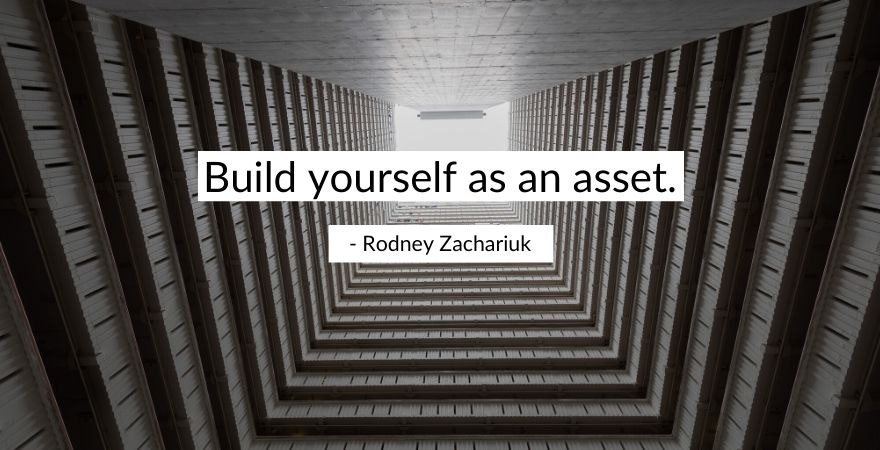
The Addiction to How Entrepreneurs Think
David: I think it’s interesting to talk about it in terms of addiction, and that’s something… That sort of language or that sort of idea is something that we’ve heard before, that people just get hooked on it that there’s something real, real sticky about this idea that “I could build this thing myself,” and then launch these ads myself and have an entrepreneurial mindset. For you guys, what were the addictive aspects where you were doing all this work that might have sounded really un-glamorous, but for you it was you couldn’t get enough of it.
Rodney: So to start off, I don’t know if this is the best way to do it, but it worked for us. We actually bought Apple watches, just to get the Shopify ping to it. So it was kind of like a dopamine rush that we were instantly getting. So, it made the 14 to 15 hour days when you’re just working on your computer all day, a little bit more worthwhile. It would reinforce what you’re doing it for, and that it’s actually working.
So for us at the beginning that really helped, but for now, we’ve completely shut off our notifications and we started to realize that hit us in a more emotional way, and we were reacting too emotionally. So now we just kind of analyze the data and go off of that.
Kory: Yeah.
Rodney: But at the beginning that was kind of the addiction I guess.
Kory: Yeah.
Rodney: Getting that Shopify ping made us feel more like entrepreneurs.
Kory: That and just browsing AliExpress is pretty fun at the same time. Yeah. You never know what you’re gonna come across so…
David: There is no end to it.
Rodney: Yeah. No. Exactly.
Kory: There is no end to AliExpress. So being able to do that and then saying, “Oh we could add this we could add that,” and then trying to go through the process of figuring out how to get the product and whether it’s gonna show up on time, what does it come in, what’s the quality assurance like on this? And… But like…
Rodney: It’s just… the foresight of building a business and building a machine that would work for you was almost like a baby. I think, how entrepreneurs think is all about wanting to learn and discover new things. Things you would never imagine learning in any other way.
Kory: Yeah. Yeah.
Rodney: Like your child.
Kory: And constantly creating new content and coming up with ideas to expand the store. With an entrepreneurial mindset, we’re passionate about building business and solving those problems, we’re not necessarily passionate about the things that we sell because for us, the emotional aspect is way too strong to overcome when you get too involved like that. We know people who refuse to try a new store or a new item because they’re so emotionally attached…
Rodney: Emotionally attached. Yeah.
Kory: To what they’re selling and we see that as a problem. You see a lot of people that get an entrepreneurial mindset because of addiction, and whatever your vice is. But for us, it’s the process of creating something that works for us, on the side when we’re sleeping.
Rodney: Yeah. And just the information involved with creating it to a point where you’re continually adapting with the information that’s needed to build this into something.
Kory: Yeah. We’re learners, we’re not studiers. I hated studying in university, most people do.
Rodney: Absolutely, yeah.
Kory: Because a lot of the stuff you learn is either outdated or not really relevant to 2019 or 2020, or the future. And for us, it’s like, “How much more information, and new software can we come across?” We are constantly browsing the internet for new ideas, new software. New ways to implement things, and that’s where it really comes in and that’s where we really have a lot of fun.
Rodney: Yeah, I think that definitely played a huge factor too just the… It was so instant, it was so instantaneous. All the information that was needed was… It was live almost. You’re searching, you’re scouring the internet for this information and it’s stuff that’s like… With technology on a day-to-day, it changes. So stuff that was working for us, say a week ago or a month ago, or two months ago, it could not be relevant today. So to have an entrepreneurial mindset, you continually have to expand your knowledge and kind of increase your problem-solving skills to get to the point where you can create this masterful puzzle.
Finding a Mentor to Build On Your Entrepreneurial Mindset
Kory: Yeah. And that builds us up as the asset like we said. That’s our whole philosophy. What can we provide for ourselves, because we’re the ones running it, right? We don’t have outside input. We have a mentor at home that kinda helps us with the overall business side of things, but he is in his 60s now, he’s not attuned to the internet like we are, so it’s good to get his perspective on things.
But for us, it’s like, “Hey, it’s up to us to learn this, no one’s gonna teach us.” There’s no ecommerce course at university, that’s really relevant to doing the higher-level things that we’re at now. So you gotta just come up and think for yourself. That's another thing about how entrepreneurs think differently - you gotta figure things out yourself.
David: We talked with somebody recently who… He pulled the trigger on dropping out of school and going all in on ecommerce when he was taking a marketing class from somebody with a PhD or some doctor…
Kory: Yeah.
David: He was just sitting there thinking like, “Man, this lady has never run a Facebook campaign…”
Kory: No. Yeah.
Rodney: No. It was crazy. I was actually in the same position. I was in marketing at university as well, and I dropped out just because I had the same kind of epiphany where this lady didn’t have any clue what she was talking about, and I’m like, “This lady doesn’t even know what Snapchat is, what Instagram is or… She barely knows what Facebook is let alone, running Facebook advertisements.” So I got to that point where I was paying thousands of dollars and I’m like, why am I paying this stuff when I can learn more efficient information from a kid on YouTube that’s 20 years old?
David: Yeah.
Rodney: And learn it in 20 minutes to an hour versus a full semester.
Kory: Rodney had to run a search engine optimization or like a project and…
Rodney: Yeah.
Kory: Didn’t you end up getting last in the course?
Rodney: Yeah, we had this… What’s it called… Simulation, we had this simulation in our marketing class running Facebook advertisements and Google Email campaigns, and I actually came, I think it was last or second last in the class.
Kory: Yeah.
Rodney: And I started to realize, I’m like, “This stuff is so irrelevant.” Because I thought it was running good campaigns at the time, but it was solely based off of this program that was… You were forced to pay for, and just based off no real data.
Kory: And now, we’re ranking number one for a domain name. We’ve taken down the competition that’s similar or had a very, very similar domain name and have been around for a while, so we’re like, “Look at us now, right?” It motivates you to see like, “Okay, I was in this position at one point and I’m being judged by someone that’s not even doing what I’m doing.”
David: Yeah. Yeah.
Kory: Who gives them the authority to say, “Yeah you’re doing well or you’re not doing well, if you’re making money and making it happen and working for yourself.”
David: Yeah.
Kory: Yeah, for entrepreneurs that’s the ultimate win.
Rodney: And especially when it’s reflective in your grades or I guess if you’re pursuing higher education, like it applies to getting a master’s degree or something as well, which is… It’s kind of annoying to deal with, right?
David: Yeah. Yeah. There was a guy Ryan who was in an earlier episode of the podcast, and he was saying that he had a high school teacher who said, “If you don’t go to college then you’re gonna end up working at a McDonalds.” Now, now, Ryan’s doing all this cool digital nomad stuff he’s running… He’s sold stores, running new stores and so.
Kory: Yeah.
David: He said his dream is to franchise a McDonalds.
Kory: Yeah.
David: And invite the teacher over to his…
Kory: It’s funny you say that because we go on Reddit all the time, and of course we like to browse just the random sub-Reddits and the home page and whatnot, but we’re seeing people that have Master’s degrees, in America who are working at Walmart. Or fast food. And it’s like you’ve been sold this, I don’t know, I guess, lie your entire life that education’s the answer. And yeah, education is the answer, but it doesn’t mean you have to pay a quarter-million dollars to attain that, or tens of thousands of dollars in Canada to attain that cause…
David: Yeah.
Rodney: The system’s kind of flawed, because people get that mindset of education is the answer. And you’ll get your degree, and you’ll be set and ready to go. And they kind of turn off their minds after they attain that pedigree. But the entrepreneurial mindset is so different.
Kory: Yeah.
Rodney: But how entrepreneurs think is more about continual education that will bring you success.
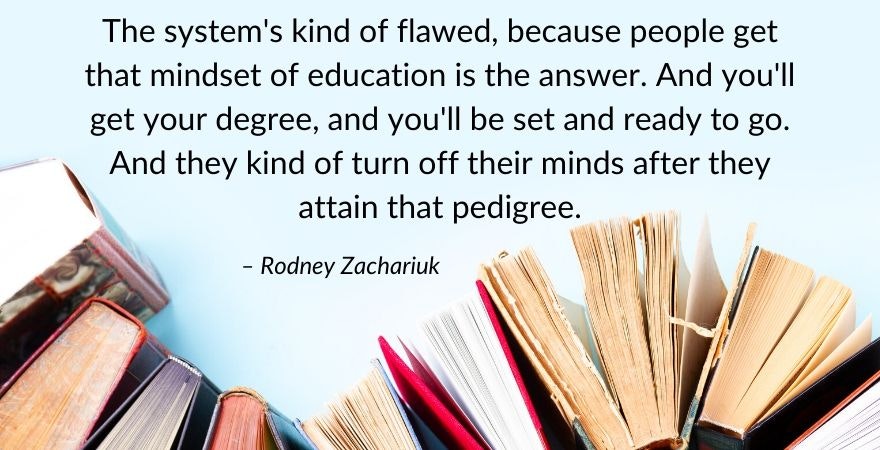
Kory: And there’s been wage stagnation over the last 30, 40 years. Like a friend of ours back home is working in a position where I started this job like five years ago, in the summer as a student and I was making $27 an hour to start. And then he got the job this summer, and his wage to start was like $23 or $24.
David: Okay, it’s not going in the right direction.
Kory: Not going in the right direction. And the cost of living is increasing, your purchasing power is decreasing, the cost of living is skyrocketing. And in Vancouver in general, it’s kind of a phenomenon in Canada, being way, way, way over-priced. Toronto, as well, is artificially priced because of a lot of the foreign investment. So it got to the point for us of like, if we’re making a salary of this much money, is that really gonna be sustainable for us? Are we even gonna be able to buy a house here? Are you gonna be able to get a mortgage?
Rodney: Yeah, we were looking at, is this gonna be worthwhile for us in the long run? Especially when we’re working in an industry where we have the ability to move or work remotely, so you wanna take advantage of that, and that’s where we’re at now, just searching for places to go where we can have the entrepreneurial lifestyle that we want to enjoy with just WiFi and the accessibility of the Internet.
Kory: When you have an entrepreneurial mindset, having WiFi is all you require.
David: It’s your office.
Kory: Yeah, yeah.
Growing a Business on Social Media
David: You guys did something cool to hone in on what sort of products you wanted to sell, and that’s using social media as a… I don’t know if market research is the right term, but use social media to figure out what were the niches with the most interest and what are some things that… Collect data to see what are some things that you might be able to sell. So a lot of the time we talk about how you find a product, then you launch a store, and then you set up your social accounts, and then you race forward. You guys went from the social accounts to the products, and then you raced forward. So, somewhat the other direction. Talk a bit about how with an entrepreneurial mindset you use social media to launch your store as opposed to this normal route, where people might set up social media only after things are up and running.
Rodney: Right, yeah. So we just wanted to reverse engineer the process and we saw that social media was a huge driving factor to build an organic engine for a lot of these stores. So we kind of started to build the social media accounts on Instagram to see if there was gonna be audience engagement, if people were interested in it to begin with, and we wanted to just test that to see if it was worthwhile before we put all of our effort into that specific niche.
Kory: Yeah.
Rodney: And it gave us the option to test a bunch of them to see what was the highest engaging, which ones we could build a community around.
Kory: We’ve seen people blow thousands of dollars on Facebook ads in a day or a few days trying to test products, and as kids who didn’t have a lot of disposable income at the time it’s like, “Okay, well we have to bootstrap this somehow, and what’s the best way to do that? It’s to go out and do something that’s free obviously. And so with Instagram you can create as many accounts as you can get your hands on, and then from there it’s up to you. Yeah, you gotta put your time in and find posts that you can post on the account and then engage with people and grow it, but that’s free. It’s just your time.
David: Right.
Kory: So for us, it was more valuable to do that because you’re building an audience, and then maybe once you hit 1,000 followers you get that traction point of like, “Hey, this is kind of taking off.” So once we hit that and ended up seeing that, Instagram was the way to go. We already had an audience built for when our store was launched, and from there we decided to do a giveaway because we had like what, 8,000, 7,000 followers at that point?
Rodney: And also just to touch on just growing the Instagram first, it gives you better insight into, first of all, your customers, and then your business as a whole, because you get to engage with your community and see what they’re after, what they’d be interested in to begin with, so you have a better…
David: The language they speak and all of that.
Kory: Yeah, exactly.
Rodney: So I think that’s very useful in creating a successful business.
Kory: And then it helps you also determine your competitors, right? Otherwise, you’re just gonna be browsing for hours on end trying to find out who the competitors are in the space, but if you’re creating an Instagram account, well you’re gonna see… Well, they used to have the activity page or the activity tab, where you could see who liked whose photo, commented on that. So if you see someone that sounds like a business, we would go in and we’d check them out and see like, “Okay, what are they doing right, what are they not doing well on here? Is their Instagram following fake? Because we see people with over 100,000 subscribers or followers on Instagram, we’d go in and check their engagement rates, and you’re getting 200 likes on a photo, or one comment…
David: Doesn’t quite add up.
Kory: Doesn’t quite add up. So, okay, our whole focus is… Like organic is the driver of everything. We’ve got an email subscriber base now of 60,000-plus, to 34,000 on Instagram of real people. Whereas if you had bought 100,000 followers as bots, you’re not getting any information out of that.
Rodney: It’s actually detrimental to your account just because now you’re getting lower engagement rates on your photos, so with the algorithm, you’re not gonna be getting pushed to that higher tier of viewership.
Kory: So by having those 7,000 or 8,000 followers, by the time Black Friday rolled around, we didn’t have to create any campaigns that we put money into, we used our entrepreneurial mindset to just brainstorm a really cool idea for how we would promote a product, and then did a giveaway and gained entries through that, and a lot of traffic through that and word-of-mouth entries. And then people decided like, “Hey yeah, these guys look legit, we’ll buy from them and we wanna win the prize.” So, it already had the organic base for us where we didn’t have to put money into it, and then anything we did make from there we reinvested back into marketing.
David: I love a good giveaway. That’s a hack that…
Kory: Yeah.
David: Everyone can use. We’ve heard that a million times.
Rodney: Definitely, you gotta differentiate yourself and you gotta incite buzz around your store.
Narrowing Down Your Business’ Focus
David: Rodney, you mentioned that you have to divorce yourself a little bit from the products that you’re selling to not get too tied up. That’s interesting in the context of the different Instagram accounts that you all launched at the get go. So I think… Tell me if I’m missing anything here, but there were accounts for basketball, jewelry, fake house plants, tech gadgets, holiday accessories. And then there was also one for fantasy gaming. So how do you come up with these half dozen things? Were these things you were interested in, or were these things that you heard other people talking about? What was the logic here?
Rodney: No. There was buzz around them that we are researching, and just from going through Instagram, and going through other advertisements on Instagram that we saw from other dropshippers, we were just kind of brainstorming at our place, thinking of what kind of stuff would people be interested in and what kind of niches people are very involved in. So, with basketball, that’s a niche that people are very kind of passionate about, right? So, we were looking into that and were kind of going off of the increasing trends within the NBA and how basketball was continually growing exponentially each year. And then from there, yeah, the other products…
Kory: Like house plants and tech gadgets. I mean, tech gadgets are always gonna be around. Of course, they pose problems in terms of electronics working properly when you’re trying an AliExpress dropshipping or…
Rodney: Which we never really kind of considered.
Kory: Yeah, I don’t even know if you can buy battery packs for charging stuff from there now, like we looked into those and…
Rodney: I don’t think you can ship them.
Kory: For ePacket shipping. And some of them just seemed very, I don’t know, tough to do, but… Then there are things like keyboards, and mouses, and stuff that, more often than not, they’re probably gonna work, but you gotta test them out yourself. House plants, I mean, my mom likes to have stuff around the house all the time. And you know that that demographic alone, the kind of like I guess the Gen X or whatever generation they are…
Like they’ll spend money on home decor like crazy. And then there are retail stores around where we live at home and they… Like plants are like $50, $100, and then we’re like…
Rodney: We were realizing how much they were charging for those things and how much we could get them for on AliExpress and it was just like the arbitrage opportunity was insane.
Kory: Yeah, of like selling the accessories for them, like watering things, or I guess pots, and whatever else, hanging baskets. Like all this stuff is out there. And the plants are continual like they gotta, they always want more, they always wanna redo their garden, or they wanna change things, or they get tired…
Rodney: Seasons, yeah.
Kory: Yeah, exactly. There’s…
David: So, between all these different niches that you guys were exploring, was there one you were hoping was gonna end up being your winner, were you having your fingers crossed for basketball or?
Kory: I mean, yeah, we’re big fans of basketball, but, for sure, but we just didn’t see it as being the most penetrable.
David: Market.
Kory: Niche to get into.
David: So, we’re looking at it, so this is interesting that you kind of looked at what happened to your account and determined, “Okay, this probably isn’t gonna be for us.” What were the signals that you were seeing there?
Rodney: I mean, just engagement and how quickly the following was growing. And if people were kind of really…
Kory: Tagging friends, or saving posts, or sending posts to each other.
Rodney: Yeah, we were looking at the analytics, and seeing what the engagement was like, and if it was high-quality engagement. Because we wanted to build something that was gonna be long-lasting versus just kind of a cheap quick, like a fidget spinner, where it’d be just a cheap quick thing you make your money off of and then it kind of dies off after that. We wanted to build something that was sustainable. So we had to make sure that our community was gonna be rock solid. So, that’s kind of what we went off of.
Kory: Yeah, it went off of that. And I mean, basketball’s got a pretty rock solid community, for sure, but it’s very segregated… or people are die-hard fans of this team or these players. And then there’s also a big amount of accounts out there that are dedicated to basketball already, like meme pages, or I guess other accounts like that, or people that post just random videos. So, you’re competing with those and not to say you can’t compete with them, but…
Rodney: For us to begin with, it was just…
Kory: Yeah.
Rodney: There was a lot more friction down that avenue.
Kory: Yeah. And because we had multiple avenues to look into, we could quickly see like, “Hey, look, these other ones that are aren’t growing quite quick in comparison, why are we wasting our time? Let’s get rid of this one. We’ve narrowed it down.” And then ultimately, yeah, got to where we were with the fantasy niche.
David: Could you define what the fantasy niche is? Because the first time I read this, I thought, “Oh, fantasy sports? They have a fantasy sports website?” But that’s not it. So what is, broadly speaking, what is the fantasy…
Rodney: Kind of like medieval.
Kory: Yeah, like role-playing, RPG role-playing…
David: Immersive fantasy worlds kind of thing.
Kory: Immersive fantasy worlds. Yeah, like stories, people that are more involved in the medieval style.
Rodney: Think like Lord of the Rings or…
Kory: Lord of the Rings, Game of Thrones, kind of all that, Harry Potter.
Rodney: That kind of niche. Yeah, that kind of subset.
David: Cool. And what was your experience with this heading into it?
Rodney: Prior? Just fans of general kind of fantasy movies or video games when we were younger, playing RuneScape, or World of Warcraft when we were younger kind of sparked that. But when we grew up, we kind of fell out of that. But we knew that there was a strong subset of people that were super, super passionate about it. And it’s one of those niches that people that are invested in it are super, super invested into it. So, our past experience and entrepreneurial mindset kind of led us to that.
David: And so this idea of the audience being super invested, I think this is more important than a lot of people realize that you can have like a cool product, but if the target group for that product is kind of indifferent to it, then you’re gonna have a lot of, you used the word friction, I think that’s a word for it. It’s gonna be kind of swimming upstream. Whereas if you have a good product and then a target audience that is really dorky about it, or that has all the gear, or they’re just kind of like they live this stuff, I guess that was part of the equation, right?
Rodney: Absolutely. I think it’s a lot easier to kind of move people down the conversion funnel when they are invested in something like their hobby. People are more likely to spend money on their hobbies versus anything else. That’s something that brings joy to them, that’s something that… it kind of plays on their emotions, because it’s something that they get excited for. It’s one of those things that when you’re passionate about something, you don’t really have an issue with spending money on it, right? Like if you went to a guy that loves fishing, he has no problem buying a $300 fishing rod whereas he might have trouble or he might find friction with purchasing an expensive dinner. So, there are two different avenues where he can spend his money and one’s a lot easier for him to spend his money on.
How Entrepreneurs Think In Difficult Situations
David: So after you guys had the niche figured out and you knew you wanted to do this fantasy thing that had this fervent fan base, you populated your store with a bunch of products that were low cost and kind of a little bit easier to move. So you were able to kind of see some immediate sales and immediate returns and you knew, you had a proof of concept, “Okay, this works.” And then over time, you evolved the low-cost, high-volume equation into products that cost a little bit more, maybe they’re a little bit more complicated to sell, but strategically, it was a good decision for you guys. Talk about the entrepreneurial mindset of going from just trying to push as many smaller sales as you could getting into things that each item costs a bit more.
Kory: Yeah, this is a bit of a funny story how it all kind of played it out, because, honestly, anything that could go wrong for us went wrong. So, with Black Friday, we started with a giveaway campaign and things kind of blossomed from there. And we went from $3,000 in November in revenue to like $60,000 or $70,000 in December. And then $100,000 in January.
David: So this would’ve been like 2018, 2019?
Kory: Yeah, 2018, 2019.
Rodney: 2019.
David: Cool, cool.
Kory: And then Black Friday or after Black Friday, Christmas, the New Year, great. January rolls around and then comes Chinese New Year and we’ve never been affected by Chinese New Year in our life.
Rodney: No.
Kory: And everything came crashing down.
David: It’s not top of mind?
Kory: Not top of mind.
Rodney: No.
Kory: We get messaged by our supplier, saying, like, “Hey, gonna be away for the next three to four weeks. No, nothing’s gonna be shipped, not taking orders.” And we’re just like, “Oh my God, what do we… “
Rodney: Pure panic mode. Yeah.
Kory: Pure panic mode.
David: Because how many sales were you sitting on at this point?
Rodney: We were doing around 1,000 orders a day at this time.
Kory: Yeah. We hit our first $15,000 day in revenue in January right before Chinese New Year and we were just… We didn’t know what to do. So out of desperation, when we got home from Hawaii at the end of January, beginning of February, my parents ended up going to Mexico, so Rodney came to my parents’ house, I went back to my parents’ house, we lived there for a week and worked from 10:00 AM to 4:00 AM every day restructuring our entire website.
Rodney: Yeah.
Kory: Going with a pro template that we really, really thought would be cool for our store.
Rodney: Doing pricing structures just…
Kory: Redoing the entire pricing structure.
Rodney: Thinking of new promotions, thinking of new ways to kind of just restructure the business.
Kory: Yeah. And then from there we were also under audit from American Express with our credit card that got locked out. Our Facebook Ads account had been banned for the third or fourth time by that point.
Rodney: Yeah. For like a week. Yeah.
Kory: And PayPal had frozen our account. So we were in fight or flight mode at this point, and we were like, “Okay we can do the customer service for all these people that are waiting for their orders, we’ll just have to get through that. That’s… We don’t have a choice at this point.”
Rodney: Yeah.
Kory: And what would be more important to us is keep them as potential returning customers, by giving good customer support. Or do we just cancel the store and we were like, “No, we can still do this, we know it works.” That’s the entrepreneurial mindset coming through during a hard time. Entrepreneurs think about the long term, not short term. We needed to keep our customers happy in anyway that we could.
David: Yeah.
Entrepreneurial Thinking: When To Pivot
Kory: So then we were like, “Why are we not moving to higher ticket items as well?”
Rodney: Yeah. Because we were going through at the time, pages and pages each day of customer service emails because we were doing the lower ticket items. And we started to see kind of the inefficiencies in our business with that because… It worked at the beginning because we were able to capture all of these emails and customer data and information, which was super, super useful.
Kory: Yeah. It set us up for the rest of this year.
Rodney: It’s essentially digital gold right now. We got to the point where we’re like, “We’ve established our customer base and we’ve kind of collected this huge organic following and now we need to kind of move into stuff that is gonna be less work on our end, and ultimately more profitable with the higher ticket items.”
Kory: Yeah. And then kind of from there, it just stemmed out like, “Why are we not going into other types of accessories that we think these people would like?” Because we were kinda essentially operating like a one-product store. We had a few products, but really nothing crazy.
Rodney: One main product.
Kory: One main product. And then our entrepreneurial mindset made us think and we were like, “You know what? No, there’s so much other stuff we can do here.”
Rodney: Yeah.
Kory: “So let’s get into high-ticket but then let’s also… Or higher-ticket. But let’s also kinda expand horizontally, at the same time.”
Rodney: Yeah. And just kind of create a full immersive experience on our site, versus just come here once buy a product and then leave. So we wanted to want people to stick around, essentially.
David: Do you have any sense that the original strategy wasn’t the right one? That you should have been doing high ticket all along or was this process of getting the emails, getting the data.
Kory: Yeah.
David: Gaining the momentum was that super valuable?
Rodney: I think that was super valuable. Yeah.
Kory: Yeah. In hindsight, definitely could have been done differently to focus on the higher ticket items for sure. But because we didn’t launch our black… We didn’t launch any campaign until November 24th, or 25th of last year, whatever the couple of days before Black Friday weekend was. So we were really late to the game and it was a scramble for us and we were just like, “We just gotta get something going, to see if there’s legitimate traction…
Rodney: There’s something here. Yeah.
Kory: And so our kinda main goal was like, sure, yeah. If we make sales and generate revenue, that’s awesome. And that’s a goal for sure, but more importantly, we have the opportunity to collect emails and get people to go to our Instagram and follow us there.
Rodney: Yeah.
Kory: And kinda build the community side of things because we knew if this worked now, then we have the entire year to prepare for next Black Friday and the holiday season, and we have all of that time to figure out, yeah, the inefficiencies in our business, kinda think bigger picture, longer term of how we wanna approach this and turn it into a sustainable business.
David: And so this, this idea of capturing emails, and getting followers on Instagram, I think it’s great and everybody should be doing that but I’m sympathetic if there’s anybody listening to this and they’re thinking, “There’s no money there, nobody’s paying me to follow me on Instagram… “
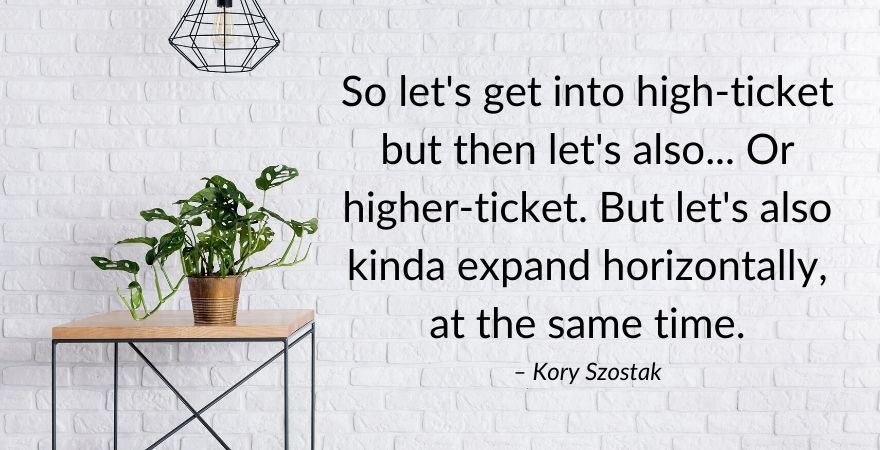
Kory: Right. Yeah.
Delayed Gratification and Entrepreneurship
David: “I’m not getting money… ” What could you tell somebody who’s thinking that to reassure them that this is a… It’s maybe a slow play but like just do it?
Rodney: I think the entrepreneurial mindset comes back to this philosophy of delayed gratification versus instant gratification. Right. You’re not gonna see an instant return from people following you on Instagram or people subscribing to your email list, but ultimately the back end is where you’re gonna make your money with your returning customers. And it’s kind of an organic engine that you can continually utilize to churn advertisements to people for essentially free.
Kory: Free. You’re just paying the subscription.
Rodney: You’re just paying for the email subscription.
Kory: Or entirely free on Instagram, right?
Rodney: Right.
Kory: We like to post new products on Instagram and behind the content that we post, in like a carousel format or on our stories, and then, taking polls and…
Rodney: Yeah. Gathering customer information, customer kind of ideas on the aesthetics that they’re looking for in our products, which are huge market research opportunities for us, as well.
Kory: Yeah. We wanna be integrated entirely within their world, because you can only do so much YouTube, and blog research or Reddit research, but to get direct feedback is…
Rodney: It’s like being on the ground level.
Kory: Yeah.
Rodney: Yeah.
Kory: Being on the ground level, seeing it for yourself and then making informed decisions from there and kinda deciding, looking back at the data we’ve collected over the past year and kinda seeing like, “Okay, how does this information line up with what we’ve achieved already and is there anything here that we think we could push into more of a custom piece?” And then we get that out there.
Rodney: Yeah. And it kind of goes back to as well with capturing the email subscribers and the Instagram too. You kind of utilize Facebook and Instagram advertising or say Google PPC and you have to pay for each customer that you’re acquiring. But once you pay for those people, if you can retain them, you can advertise to them essentially for the rest of their lives.
Kory: Yeah. The lifetime value of the customer could be thousands of dollars before you know it.
Rodney: Yeah.
Kory: We’ve had people spending over $500 on our store now.
Rodney: Yeah.
Kory: Like multiple people right?
Rodney: Multiple times. Yeah.
Kory: Multiple times. They’re returning customers, over and over again, whenever we release new items that they’re super excited on…
Rodney: And then, so we’ve already paid to acquire that customer and so now we have them for free right?
Kory: Yeah. And within that too, running email campaigns, is so targeted because you know for sure these people are interested, if they’re staying on there, we like to offer discounts within our email campaign that you only get by signing up for it, right. So it kinda adds that extra layer of, I guess, the funnel for people, it’s like okay, they’re already super targeted, they wanna be on here, what can we do to entice them to buy? And now we have a bigger budget essentially for advertising, if you will, because we’re not trying to acquire them anymore so we can afford to give them a discount, that’s a little bit heavier than what we would normally promote for.
Rodney: And as well as just with the email campaigns, providing value within them is huge for retaining your customer base and not having them unsubscribe and actually having them engage with your products, right.
How Entrepreneurs Provide Value
David: What does that look like in the fantasy space? Like what’s adding value?
Rodney: So right now, we work with a blog writer, and he is producing, what four blogs for us now?
Kory: Two blogs but we get three to four posts a week, ranging from 1,000 to 5,000 words, and then a podcast that we’ve partnered with as well. And he’s grown like crazy so…
Rodney: Yeah. So we’re just kind of engaging that within… Or incorporating it within our email campaign.
Kory: Put that in the email campaign each week we do a little excerpt from the blog posts. Click here to read more, podcast, here’s the title of it, here’s like a quick description of it, click here to listen to it. And yeah, we add things like obviously new products in there. Do a little quick caption in the beginning about, “Here’s what this week’s email campaign is all about,” or, “Here’s what you can expect in the coming weeks, stay subscribed to us, and you’ll see what’s gonna happen.” We like to generate excitement and kind of like build the hype around stuff, just because that’s what they want.
Rodney: They want the full experience. Also just to match with that as well, we’ve created a persona that is kind of like the figurehead of our company and he is as well, just like a fantasy character that we’ve created. So it’s a more intimate thing with the emails, so it’s like, it’s coming from…
David: It’s sent from him?
Kory: They’re sent from him.
Rodney: Yeah, yeah exactly.
Kory: And we get addressed as him when emailed from Macworld and Instagram. But that’s… People resonate more with someone that’s like an actual figurehead as oppose to like just the business, we think it’s more personalized…
Rodney: Yeah, cool, intimate yeah.
David: So, you have emails that you send out that don’t have products, don’t have discounts, don’t have any… You’re not pushing anything, it’s just…
Kory: No, no, we combine it all together. So each week, it’s like, yeah, the quick excerpt from the persona that we’ve created, him kinda just explaining new items that we’ve acquired essentially, how we got them, making up a back story about it, and then, we’ll post those items below.
David: Like a fantasy story?
Kory: Exactly, yeah, yeah, we create a story with everything, all of our products have a back story. We want it to be as immersive as possible. Like, come here, we want you to read about it, we want you to get excited about it.
Rodney: Stay on the site.
Kory: Stay on the site, yeah.
Rodney: Dork out with us.
Kory: Exactly and then…
Rodney: Absolutely.
Kory: Because we… At the time when we partnered with the blog writer, and the podcast guy, we didn’t have the money to be like, “Hey we can sponsor you, or pay for you to write for us or be on your podcast.
Rodney: Or, hire someone full-time.
Kory: Or hire someone full time. So we just kinda… We’re like, look we have all this exposure on our email campaigns and we get this much site traffic, of what we’ve had. This is what we’ve had in site traffic over the last few months. Here’s our Instagram as well that you guys already follow us on there.
Rodney: As well as just experience growing Instagram and social media accounts too.
Kory: Yeah, so we offered them. We’re like, “Look we’ll put you on all these mediums in exchange for doing the work for us as in like writing the blog post, letting us put it on our website or making us a sponsor and organically putting our name into the podcast.” And yeah, this guy has grown from like 200 followers in May or June to almost 10,000 now.
Rodney: And he’s fully, fully into creating the podcast as well, he’s a genius.
Kory: Oh, he’s awesome. He’s a genius, yeah. He’s got the entrepreneurial mindset too.
Rodney: Super, super cool guy and he’s super…
Kory: We love working with him, we meet with him about once a month and just over Skype and we leave that meeting more motivated for the coming months because he gives us ideas that we wouldn’t necessarily think about off the top of our heads, or even for brainstorming. So, he’s into this stuff religiously. And for us, we’re like this couldn’t go any better because we’re loyal to each other, we’ve helped each other grow mutually. And then we just enjoy working with each other.
Rodney: We share the same vision.
Kory: Yeah, we share the same vision.
David: So you two have done something that a lot of ecommerce entrepreneurs and lot of dropshippers do and that’s live this digital nomad life where any place with a WiFi connection becomes your office, you’ve done this tour of Asia, you’ve gone to Hawaii, you’re currently on a big swing through Europe. All the while you’ve been running your store, growing things… What’s this experience been like to you? What’s this digital nomad existence, like for anybody who thinks that that sounds alright?
Rodney: Yeah, I mean ultimately that was our biggest motivation into getting into this space just because we wanted the time freedom, we wanted the location freedom, and we wanted the financial freedom. So this, I guess job, if you will, or career it offered us that. So that’s what drove us into wanting to get into dropshipping, and having a business model that we could run from our laptops and our smartphones, right?
Kory: Yeah, definitely, like just… With an entrepreneurial mindset, we got the life we’ve always wanted, being able to wake up and do whatever you want. Of course, we’re working every day still. We also run a marketing agency on the side, so we’ve got clients and responsibilities there, but having these two businesses that are entirely done from the laptop is… We couldn’t ask for anything more because it allows us the opportunity to continually learn and adapt and find new ways to solve problems. But then from there, now, we’ve added the travel aspect of living abroad, working abroad and figuring out ways to tackle problems while we’re not in the comfort of our own home. Because yeah, ultimately we wanna continue traveling but we have to make sure that we can stick up to our responsibilities on one end, but then also enjoy the travels and the life side of it at the same time.
Rodney: Definitely, I think it’s good for getting a new perspective on things, as well. When you’re traveling around and you’re working, just because you see things from a different perspective, whereas if you’re kind of in the stagnation of your own home, you’re seeing the same kind of thing every day, day in and day out, it gives you just a chance to see things from a different point of view and that can apply to your business as well.
David: Have you applied stuff that you’ve seen abroad to… Have you had new concepts or new… Seen stuff that you have indeed, implemented into your…
Rodney: Definitely. Yeah, just like general aesthetics for websites or just for stuff that we’ve seen while we’re traveling.
Kory: Different types of advertisements.
Rodney: Yeah, yeah, exactly. So, we went and we explored a bunch of castles in Europe and we got to experience that and just, “Okay, how can we apply this to our store, how can we utilize this aesthetic or this story or this background.”
Kory: Adds fantasy.
David: It’s perfect.
Kory: So, that was a big thing for us… Is like we gotta see some of these. And it’s just have been a dream of mine to come over and see those types of buildings, right?
Finding Balance As An Entrepreneur
Rodney: So, it’s also good to just stepping out of our, I guess echo-chamber of Kory and myself because when you’re in the middle of it, and you’re working, and you’re kind of in this routine, it’s hard to see the inefficiencies within your routine when you’re in the middle of it. So traveling and kind of moving locations and being able to have a mental reset or taking a step back gives you kind of an outward look into the inefficiencies that you’re currently experiencing.
Kory: We were working six and a half days a week before we came on this trip to Europe partially because we knew, we had to get a lot of work down to automate things on the back end but that was also just kind of like what we had adapted to.
Rodney: Yeah.
Kory: And coming here, we realized quickly… We were working way too much and… Yeah, in the beginning you gotta put those hours in, and do the 16-20 hour days and figure out those problems. But, we thought we had a routine that was bulletproof. And, it turns out that once we got this outside perspective looking back, we’re taking time away from that routine, we realized… “No, we are being efficient. Yeah, and we’re working hard but we could be doing it better.”
Rodney: You could be much more efficient and not burning yourselves out as much which is, I think… A huge key where people kinda get this perspective that you need to be working 20 hours a day and just grinding it out, grinding it out. But at the same time, if you wanna be truly proactive and use your foresight correctly into what you can take this business to, you have to have that downtime.
Kory: You got to be able to think and you have to have a brain that’s functioning at the most optimal level, right?
Rodney: Yeah.
Kory: We work with a friend at home who’s helping us with our diet and workout regime and trying to… Our sleep schedules… Because at first, we were all gung-ho about working as hard as possible, putting as many hours in working at another job, before we went and did this decided to do it full-time.
Rodney: Yeah. We stopped going to the gym. We’re just eating unhealthy.
Kory: Yeah, yeah… Just stuffing ourselves that one meal a day.
Rodney: Drinking three to four coffees a day, just…
Kory: And…
Rodney: Getting in that.
Kory: Yeah, it’s doable for sure because it got us through the hardest part in the beginning, but it’s not sustainable, right? We didn’t feel good, we felt like we’d got a lot of brain fog.
Rodney: Yeah, very lethargic.
Kory: Very lethargic and your motivation kinda slowly dwindles out from there because you wake up every day and you’re just in this cycle of like, “Okay, I just got 16 more hours to go.”
Rodney: Yeah. There’s no end in sight.
Kory: Yeah.
David: There’s one thing about this sort of job versus a nine-to-five job… Nine-to-five job has a million drawbacks. And, I think that’s why so many people with an entrepreneurial mindset are interested in dropshipping because they don’t have to work for somebody, they don’t have to go to the office that… There’s a lot more freedom.
Rodney: Definitely.
David: But on the other side of that because you don’t have Monday to Friday, nine-to-five then maybe Saturday becomes also a workday or work till you’re saying 16 hours. Yeah, if it’s 10 o’clock in the morning till 2 o’clock in the evening.
Rodney: Right. Essentially there are no barriers unless you set them for yourself, right. Because issues can come up at any point in time or emails are gonna be coming in or… You can essentially be working on it 24/7, if you want to. It’s never-ending, yeah. So, you really have to set those boundaries for yourself and kind of incorporate a healthy regime and lifestyle into it. So, you can work as efficiently and as long-term as possible because realistically you can’t… You can’t work like that for a year or two years straight, you’re just gonna burn yourself out. And, it’s not gonna work out.
David: So, what’s one thing that if somebody’s scaling up. They… Maybe they’ve cracked through this 15-hour day at the beginning routine and now they wanna do something that’s more sustainable… What’s one thing that they definitely need to do to not head-down this burn out route?
Rodney: I’d say build-out systems.
Kory: Yeah.
Rodney: Just go through the processes that you’re going through on a day-to-day basis and see what you can automate right? See what you can kind of reduce in terms of bottlenecks and inefficiencies and how you can utilize technology to your advantage to make your whole job easier.
Kory: Yeah, yeah… Build out those systems and as applicable as it is to your business, do for your life as well, right? We focus on meal prepping because it used to take us maybe an hour to cook and eat a meal entirely but if we have meals ready to go in the fridge or the freezer… We don’t have to think about that and then coming up with the proper system for your daily routine, right? Have things that you get done each and every day, that’s part of the system. Make sure that you incorporate some sort of physical activity or exercise because it gets your brain going as well.
Rodney: Improved cognitive function.
Kory: Yeah, focus on improving your cognitive function. That all comes back from these systems. You know it’s gonna work for you, find out what it is that works for you, implement it. And, then build off of there.
Rodney: Especially utilizing proper structure in your life. You reduce the amount of decision fatigue as well. So, we were coming to that point too, where it’s like we have so much stuff to do but we don’t know what to do first. So, it’s just super overwhelming if you’re not sure what to attack first because you just see this mountain of tasks. And it’s like, “Where do I even start, right? So, I think for people if you can segment that out and visualize it, we utilize a whiteboard and we use that all the time where we write down tasks that need to be done for the day, what is the level of importance and what needs to be done first? And we get those done in order just…
Kory: Yeah.
Rodney: And we know what we have to do.
Kory: If you’re able to cross them off and you have the longer-term ideas on the board. “Well, hey, you’ve freed up time.” Now you can actually approach this problem now as opposed to waiting till it’s too late or you have to react to an issue that…
Rodney: Versus being proactive.
Kory: Yeah.
David: This is a literal whiteboard or…
Kory: Oh yeah… Oh yeah, a literal whiteboard.
Rodney: Yeah.
Kory: Physically cross it. As much as it is online, it is nice to be able to write in a journal or have a whiteboard that you can put things on and I don’t know, crossing something off or erasing it just feels so good.
David: It’s different than moving it to a different part of your…
Rodney: Yeah.
David: You get to cross it off.
Rodney: Yeah.
Partnerships in Entrepreneurship
David: One thing I’m curious about, I mean, you guys spend a lot of time together, traveling, working… You guys are tight. Do you ever get at each other’s throats?
Rodney: Definitely, yeah. But I mean, we’re both very rational people, so it’s not for more than an hour or two where it’s like… I don’t know, we’re not acting… Or we both act in ways where it’s like we can rationalize our point of view to the other person, so we can kind of understand them.
Kory: And then after a little while, they’ll agree or you’ll just kind of get over it.
Rodney: Yeah, yeah.
Kory: We have the same entrepreneurial mindset on essentially everything. There are obviously little things we’re like here and there, “We should do this,” or, “We should do that,” but then it’s like, “Okay, you know what, here’s your idea, here’s mine. Let’s talk about them and then see which one prevails.”
Rodney: Yeah, we’re both aware of our weaknesses and our strengths, so we both kind of play on that. And we’re just we’re open to listening and communication with each other because if you get too hard-headed, it’s hard to work with people because you’re always gonna hit that stagnation point if you can’t come to an agreement.
Kory: Yeah. No, a lot of our friends back home are very, very close-minded in terms of, oh well, trying to start a business themselves or ourselves and seeing that happening. But not just that, but in politics, or in sports, or music, and we’re like, “Why? The whole world’s out there and you’re only committing yourself to this one little pocket.” And for us, we wanna expand our entrepreneurial mindset and continue to grow and find things that are issues within ourselves, and then we can address them with each other or with the people that we work with. And from there, yeah, we just wanna continually learn and grow. And so, to do that, you have to be as open-minded as possible and you have to have good communication.
Like we said, we’re an echo chamber between ourselves, but at the same time, we can brainstorm like crazy an entire day. And then there are days where it’s like maybe we didn’t have such a good day or we lost money on bad advertising or bad sales. So yeah, we’re obviously moody, but… Things need to get done, so you gotta hold each other accountable.
Rodney: Yeah, which is huge too. Just having another person to work with that has like they share the same vision and entrepreneurial mindset as you, it ultimately makes it a lot easier, because you see that grand vision in your head and these little inefficiencies or these little issues are just… They’re not a problem in the grand scheme of things.
Kory: I mean, you’re not tackling them alone. So he’s got his entrepreneurial mindset, I’ve got mine. More often than not, they’re similar, but sometimes they’re entirely different. And then from there, it’s like, “Okay, well, if I was doing it alone, I would go down the rabbit hole of what I thought was right, but it could be completely wrong. And then I’d have to come all the way back and re-try another one. Whereas here now, we can kind of brainstorm, put a few ideas together, and then cross off the ones that we think are kind of stupid, or not gonna work at all, but…
Rodney: Yeah, or even just collaborative research is huge, because we can… We have two people that we can go into something and say, “Okay, I went down this kind of line, and you went down this line. What did you find out and what works from that perspective and what doesn’t?”
Kory: It allows us to split up a lot of the work we do too. Like everything he does, I can do, and vice versa, essentially. But we don’t necessarily need to do it at the same time or have at least an intro into what each other’s, kind of, main responsibilities are. And then from there, it’s, “Okay, yeah, if you really can’t do anything, I can help you out,” or he can help me out. But then you’re not focused like, “Okay, I have all this work to do for this, and then I have to focus on this.” And it’s like, “Okay, we can split it up, we can get things done throughout the day. And then we can have a think tank kind of afternoon and just chill out and relax, and then focus on the bigger task at hand.”
Rodney: It gives us the ability to be a lot more precise as well with our work, just because we can go down specialization kind of chambers.
Kory: We can go down specialization avenues… I don’t know.
David: You can specialize.
Rodney: We can specialize. Yeah, yeah, yeah. We can specialize. So it gives us the opportunity to do that and, kind of, have someone else go over your work and kind of give a different perspective as well.
Kory: And then we learn from each other too. That’s the ultimate is like now, we’re not stuck with just one person running the business that where you’re not able to ask someone else for help or to review something or run an idea by them. So I think that’s one of the most beneficial parts of finding a business partner that is on the same page with everything. Like our financial literacy, we like to grow and learn that stuff together, but we’ve been frugal our whole lives, trying to save money and invest money. So, having that entrepreneurial mindset right out of the bat or right out of the gate is super important, because you could have a partner that wants to get paid week in and week out from the business. Whereas we just wanna reinvest and put it all back in and grow it the top that we can, because we know we haven’t even scratched the surface yet. Like there is so much more work that can be done. It’s just…
Rodney: There’s so much more money on the table.
Kory: It’s just a matter of time and figuring out all these problems ahead of us.
Rodney: Yeah.
What You Wish You Knew Before Getting Started
David: Alright, so one thing before I let you go that I like to ask people is something that they know now that they didn’t know when they got into ecommerce? So is there anything that, for people who are just getting started, any wisdom that you would impart onto them that you’ve picked up over the year?
Kory: Yeah, be ready to sacrifice.
Rodney: Yeah, sacrifice is definitely needed, especially if you’re trying to do this properly.
Kory: People that support you or think that they support you, you’ll kind of come to this divisive line of, okay, who actually is supporting you and is okay not seeing you for multiple months at a time and who’s not. Like who thinks that you guys are trying to ditch them or not be friends with them anymore? We’re trying to work to our goals. And you gotta realize that there’s a point in your life where it comes to: Do you wanna make other people happy around you or do you wanna be happy yourself? And for us, we wanna achieve what we want to achieve. And if you’re not able to support that, then there’s no beneficial part to having you dragging us down at that time.
Rodney: Definitely, yeah. And it’s the mindset change of making decisions based on what others are kind of wanting of you, and what you want for yourself, and what you truly kind of wanna do. Alright, so that’ll bring a lot of mental and social negativity into your life as well with that sacrifice, because not everyone’s gonna understand what you’re doing and not everyone’s gonna understand your regime or your new lifestyle. So, ultimately, you have to kind of ask yourself, “Is that what you’re willing to do to get to this point?”
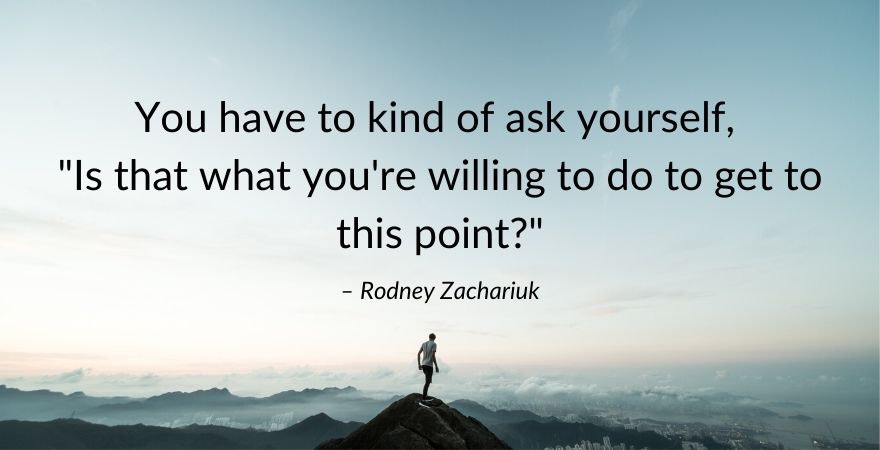
David: So, it’s kind of isolating in a way?
Rodney: Definitely.
Kory: Definitely. Yeah, like we had mentioned, we feel like we’re living in an echo-chamber between each other, because at home, there’s no one doing what we’re doing or we haven’t met them yet. But since being out here in Berlin, we’ve been able to connect with two other people that are in the industry and you develop relationships with them immediately, because they know exactly what you’re talking about and they’ve all been through the same thing. And that is the one thing that you know you can do all the business research you want, but until you actually live it and experience it for yourself, nothing can really prepare you for that. And that just adds to the difficulty of getting the business off the ground is having that social and mental aspect kind of in the background that you’re trying to deal with as well while…
David: It’s hard enough.
Kory: It’s hard enough, yeah.
Rodney: While you’re trying to solve this puzzle, yeah. I mean, you have those factors thrown in there too, it makes it…
Kory: But then it comes to the point of like, alright, you know what, well, certain things have happened, you move on with your life, and now it’s just full steam ahead with achieving our goals.
Rodney: Yeah. Definitely, and it’s just the sky’s the limit from here.
Kory: Yeah.
Rodney: Yeah.
David: Awesome. Kory, Rodney, we can leave it there. Thank you so much for taking the time.
Rodney: Awesome.
Kory: Thanks for having us.
Rodney: Thank you so much for having us. Yeah. It was fantastic.




